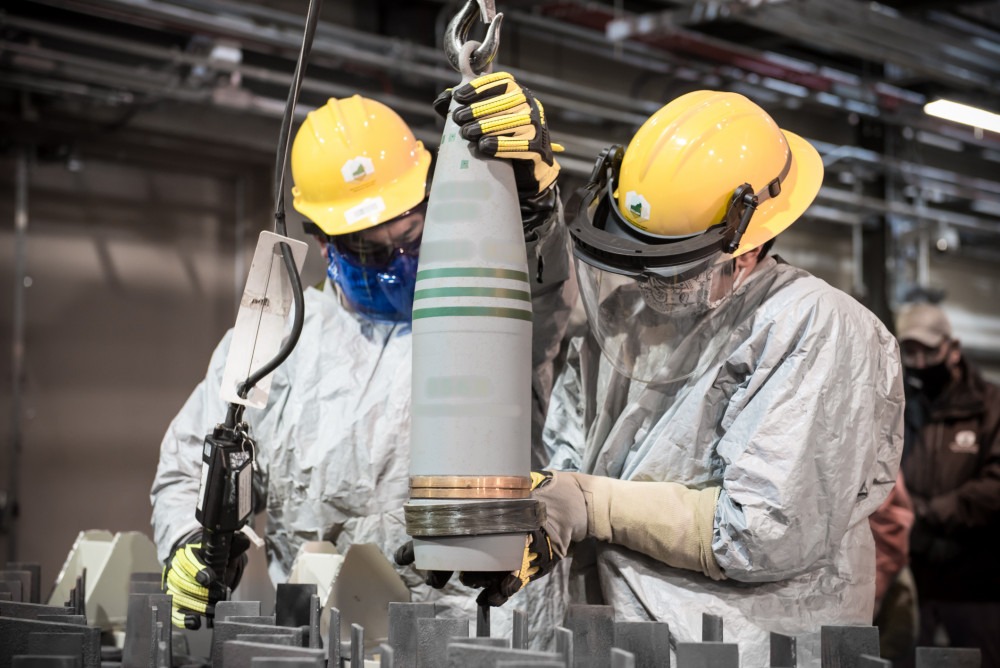
Officials at the Blue Grass Chemical Agent-Destruction Pilot Plant in Richmond, Ky., began destroying its next batch of chemical weapons, bringing the nation closer to its goal of eradicating the national stockpile by 2023.
Specifically, a 155-millimeter artillery projectile filled with VX nerve agent was robotically opened and drained on Jan. 10. It is the first of more than 60 tons of VX 155mm projectiles scheduled to be processed.
“This is a program of international significance,” Barbara Rusinko, president of Bechtel’s Nuclear, Security & Environmental global business unit, said. “The Chemical Weapons Convention commits more than 190 nations to the eradication of these weapons. Our team is equally committed to completing the mission and doing it safely.”
The drained toxins will undergo a neutralization process using hot water and sodium hydroxide, which destroys the VX agent. Further, the metal parts will be heated to more than 1,000 degrees Fahrenheit for decontamination and can then be safely recycled.
Some 523 tons of chemical munitions were stored at the Blue Grass Army Depot, but destruction of mustard projectiles began in June 2019 at an on-site facility using a static detonation chamber. By the end of 2019, more than 60 percent of the mustard agent had been destroyed. The remaining stockpile of 8-inch nerve agent projectiles was destroyed in 2020, eliminating an entire class of weapons from the U.S. stockpile.
“The plant changeover from 8-inch projectiles to the smaller 155mm munitions is significant,” Ron Hink, Bechtel Parsons Blue Grass project manager, said. “That the team completed this safely and successfully – during a global pandemic – speaks to their dedication to completing this mission.”
A sister plant in Pueblo, Colo., is doing the same. Inspectors from the Organisation for the Prohibition of Chemical Weapons are on hand at both plants to verify compliance with the Chemical Weapons Convention.
The plant is operated by Bechtel, which has played an active role in U.S. and international efforts to eliminate chemical weapons. With the destruction of the stockpiles underway in Colorado and Kentucky, along with previous projects in Alabama and Maryland, Bechtel will have safely eliminated nearly 5,000 tons of chemical weapons.




